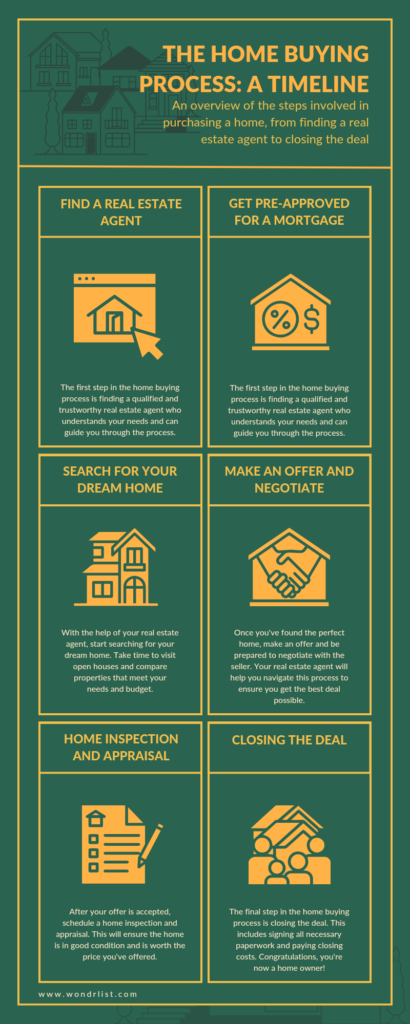
6 Steps for First-Time Home Buyers: Your Guide to Buying a Home in the USA
6 Steps for First-Time Home Buyers: Your Guide to Buying a Home in the USA
By Mir Afzal
The process of purchasing your first house is definitely thrilling, but if you are not familiar with what to anticipate, it can feel like an overwhelming experience. This beginner’s guide provides a breakdown of the six fundamental processes that every first-time home buyer needs to grasp, along with some helpful hints to make the experience go more smoothly throughout.
Step 1: Get Pre-Approved for a Mortgage
First-time buyers should make sure they are pre-approved for a mortgage before even beginning their search for a property. This is the most important stage in the process. Through pre-approval, you demonstrate to sellers that you are a qualified and motivated buyer, which might give your offer an advantage over other offers.

As part of the pre-approval process, you will be required to provide a lender with various pieces of evidence, including your credit report, pay stubs, bank statements, and W2s. Taking into account your income, debt, and credit score, they will conduct an analysis of your financial profile in order to ascertain the maximum amount of a home loan that you are eligible for.
An official letter of pre-approval will be sent to you, which will include the mortgage amount, the interest rate, and an estimated monthly payment. As you look for a new place to live, this letter will normally be valid for sixty to ninety days.
Pro Tip for First-Time Buyers: Check if you’re eligible for any down payment assistance or special mortgage programs, which can help maximize your pre-approval amount.

Step 2: Find the Right Real Estate Agent
Especially if this is your first time purchasing a home, it is strongly suggested that you work with a buyer’s agent that has years of experience. A good real estate agent will explain everything, from the neighborhoods and prices to the procedure of signing the deal. They will be an excellent addition because to their competence and their ability to negotiate!
Get referrals from friends and family members, as well as read reviews, in order to locate the perfect fit. Inquire about the prospects’ prior experience in assisting first-time purchasers during interviews with at least two to three of them. Select the representative with whom you feel the most at ease and with whom you can establish a solid rapport.
You will have access to knowledgeable counsel from the beginning of your home search all the way through the closing process if you have an agent at your side. Their commission is paid by the seller, which means that their services are completely free for purchasers like yourself.

Step 3: Search for Your First Home
Now the fun begins – actually looking at homes for sale! But don’t hit up open houses randomly. First, sit down with your agent and get clear on your:
– Target city/location and commute radius
– Budget range (based on pre-approval amount)
– Must-have features (bedrooms, outdoor space, etc.)
– Deal-breaker amenities you won’t compromise on
– Preferred move-in timeline
After the priorities have been established, your real estate agent will select listings that meet all of your requirements and then schedule showings. Take notes on the positives and negatives of each home. If there is a lot of competition, your agent might provide you with advice on strategies such as escalation clauses to help you beat out other bids.
Being a first-timer, it is important to be honest about your hopes and fears. Because it is your agent’s role to make this exciting process feel as stress-free as possible!

Step 4: Submit an Offer to Purchase
Found “the one?” It’s offer time! Your agent will put together a solid offer that gives you the best possible shot, including:
– Offered purchase price (based on comparable recent sales)
– Mortgage pre-approval documentation
– Earnest money deposit amount ($1,000 – $10,000+ varies locally)
– Proposed closing date and occupancy timeline
– Contingencies for inspection, appraisal, etc.
– Any seller credits requested for closing costs
It is up to the sellers to decide if they will accept your offer, reject it, or respond with other terms. Always be ready for some back-and-forth negotiation to take place. Your agent will provide you with advice and will speak for your interests during the entire process.
You will enter a period of attorney review once an offer has been approved by both parties, and it is possible that your earnest money deposit will increase as the transaction moves along because of this.
Step 5: Complete Inspections and Secure Final Mortgage Approval
With a signed contract, it’s time to satisfy a few key contingencies before closing:
Home Inspection: You’ll hire a certified home inspector to thoroughly evaluate the property’s condition (plumbing, electric, appliances, structure, etc.). Based on their report, you can request repairs, renegotiate costs, or walk away if major issues arise.

Appraisal: Your lender will require a professional appraisal to validate the home’s current market value and ensure your mortgage amount is approved.
Final Mortgage Underwriting: Provide any additional documentation requested by your lender’s underwriter. Once fully approved, you can lock your interest rate.
Home Buyer Tip: State laws can vary regarding which inspections are required and who pays for them. Your agent can explain location-specific details.
Step 6: Close on Your New Home!
After final mortgage approval, the last step is closing on your new house! Review the Closing Disclosure outlining all costs. Get a homeowner’s insurance policy. Conduct a final walk-through within 24 hours. Then it’s signing day!

Be prepared to sign what feels like endless paperwork. But after providing a cashier’s check or wiring your down payment and closing costs (typically 3-5% of the purchase price), you’ll officially get the keys to your first home. Congratulations!
Don’t Forget: Save for Upfront Costs
As a new buyer, it’s important to plan for out-of-pocket costs beyond your down payment amount:
• Earnest money deposit
• Home inspection fee ($300-$500)
• Appraisal fee ($400-$600)
• Closing costs (lender fees, taxes, title insurance, etc.)
• Moving expenses
Budgeting carefully can help prevent sticker shock!
The process of purchasing your first home requires a significant amount of time and work; however, having an experienced professional by your side can change everything. Now that you are familiar with each process, you will be able to make informed selections and finally enjoy the acquisition of your first home after a long wait!

Let me know if you have any other first-time home buyer questions.










